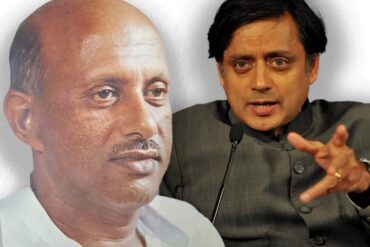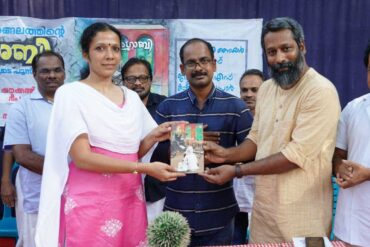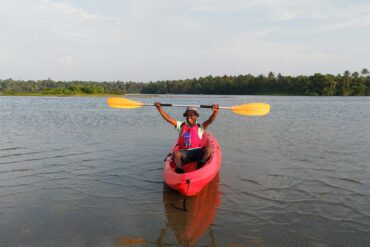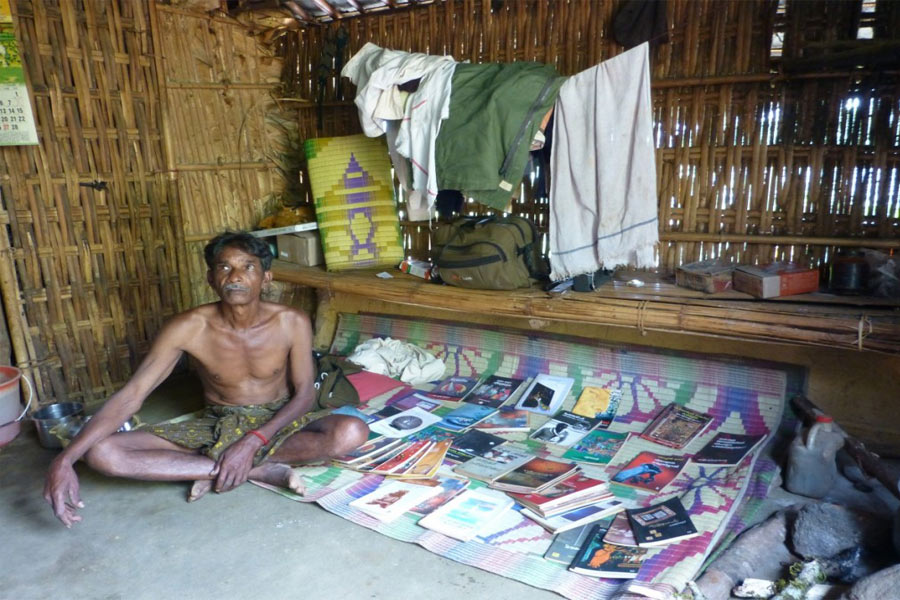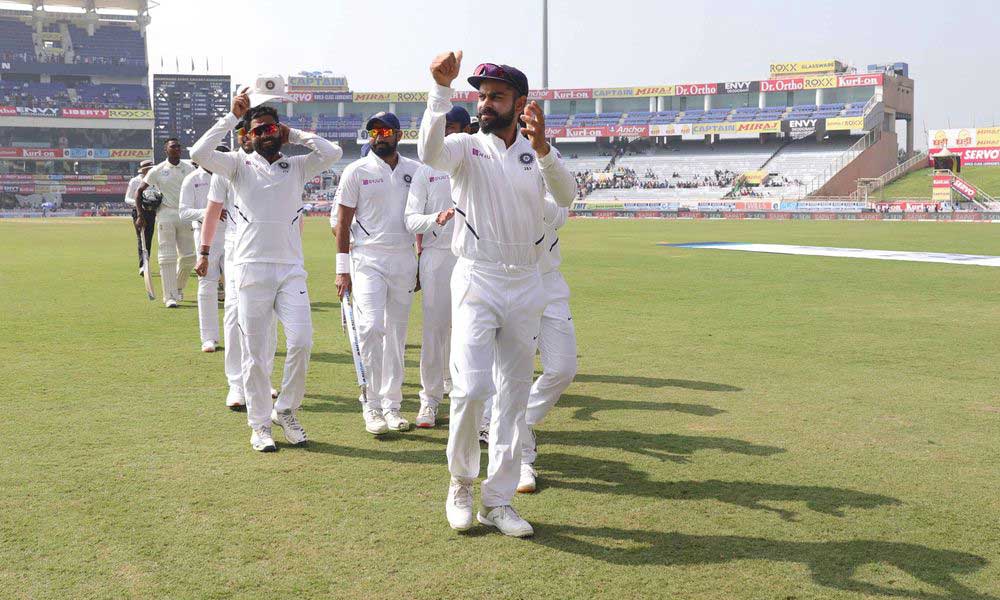The first episode of Prime Minister Narendra Modi’s monthly radio show—Mann Ki Baat—in his second term took me down memory lane at the mention of ‘Akshara Arts and Sports Library’ at Edamalakudy, one of the remotest tribal settlements in Kerala.
Nestling in the dense forests of Idukki, the library is promoted by PV Chinnathampy, a small tea shop owner and primary school teacher P K Muraleedharan. It came to my notice while trekking through the difficult region along with noted journalist and Magsaysay award winner P Sainath about six year ago.
Edamalakudy constitutes Kerala’s first and only tribal grama panchayat deep inside Eravikulam National Park. We were an eight–member team comprising journalists, filmmakers and academics, and our endeavor was to study the functioning of tribal women units of Kerala’s celebrated Kudumbasree Poverty Eradication Mission in Edamalakudy.
In those days, Edamalakudy lacked any road access and we had to trek for about 18 km through dense forests from Pettimudi near Munnar to reach the tribal settlements. Edamalakudy is a cluster of 28 tribal settlements scattered in the 106.19 sq km reserve forests.
After reaching the Iruppukalkkudi tribal settlement, we were thirsty and longed for a cup of tea. It was then, our guide and local school teacher Muraleedharan, affectionately called Murali mash by locals, led us to a tiny tea shop in a mud-walled structure, run by P V Chinnathampy. And it was by sheer chance Sainath noticed the written sign on plain paper pasted on the walls of the shop: Akshara Arts and Sports Library.
When Sainath enquired about the library, Chinnathampy displayed his precious treasure carefully tied up in two jute bags. He spread out for us 160 books in all—mainly Malayalam classic novels and Tamil epics like Chilapathikaram. The library was a joint initiative of Murali mash and Chinnathampy and they got the idea from their two journalist friends from Thiruvananthapuram, Unni Prasanth and B R Sumesh, who frequented Edamalakudy to report on issues that the tribals faced.
After spending two days in the landlocked village interacting with the tribal community and its women groups which excelled in Kudumbasree activities, we returned to the world outside via Valparai, a hill station in Coimbatore district of Tamil Nadu. In order to avoid trekking back over the same route we took to reach Edamalakudy, we chose the forest road to Valparai, which was equally challenging.
Soon after our return, we explored options to support and develop the remotest library in the state, which inculcated reading habits in the minds of the tribal settlement. A library that keeps its books in jute bags was indeed an embarrassment. Our team member and senior Malayalam journalist I V Babu took the initiative to find sponsors to arrange for furniture. He also took up the task to find a publisher who could bring out an autobiography of Murali mash, the only outsider allowed to stay on in the Muthuvan tribal land of Edamalakudy.
The shelves and chairs required for the library were ready within a week. The onerous task of multiplying the number of books at the library followed. Only those libraries with 1000 books or more would get affiliation and funding from Kerala Library Council. A simple Facebook post tagging all team members made all the difference as books in Malayalam and Tamil started pouring in. Writers K P Sudheera and Shaji Jacob prompted a number of students to respond positively and M S Madhavikutty IAS helped in sustaining the campaign. We were able to collect more than 1000 books in a month. Now the library has 1600 books and continues to nourish its readers.
“There was a time when books were brought here stuffed in sacks carried on the back. Today this library is a beacon guiding tribal children on a new path,” said the Prime Minister in his address. This statement itself is recognition for Chinnathampy and Murali mash, comrades in arms.
Murali mash still recalls the distant early morning in which he started the long trek to Edamalakudy, where nobody outside the Muthuvan community was permitted to dwell for long periods. Fear was as thick as the forests then for wild animals like elephants, bisons, wild boars, venomous snakes including king cobras and leeches lurked on the way to the village.
Mann ki Baat is indeed recognition but the Muthuvan community requires special care and attention from the central and state governments. In the local schools, the number of students is dwindling sharply. The birth rate among the Muthuvans is also dwindling alarmingly.
Anthropologists have warned that the community would be wiped out very soon if the trend persists. Health workers attribute the growing infertility among the Muthuvan hill tribe to excessive consumption of oral contraceptive pills by both married and unmarried women to avoid menstruation. During menstruation, the women have to stay in specially-made isolated huts named valapurais to avoid contact with the rest of the family. Muthuvans are a reclusive tribe zealously loyal to their ancient codes and customs. After childbirth, the mother and the infant are made to stay in the valapurais for 40 days risking elephant attacks. These rules are strictly enforced among the Muthuvans causing girls to delay menstruation by taking contraceptive pills.
Interestingly, it was the Health Department that introduced oral contraceptive pills in the Muthuvan villages two decades ago to ensure birth control. Back then, there were eight to nine children in each family. After a recent study established that oral contraceptive pills caused infertility among 25 per cent of married women in the Muthuvan community, the Health Department stopped supply of the pills through its Primary Health Centres.
But the official efforts to discourage its use have had very little impact. Medical shops at Valparai face huge demand for the contraceptive pills. There are agents and intermediaries who make bulk purchases from Valparai to sell them among the women in Edamalakkudy making big cuts.
The state government is now constructing roads to Edamalakudy and soon, vehicles will move in and out of the place. Losing livelihood options and massive deforestation are the other two issues plaguing Edamalakudy. The region needs systematic efforts to improve the living standards of the tribals and to address the grave issue of infertility. These tribals face an existential threat.
Pic: Chinnathampy in his forest library devoid of any furniture six years ago

